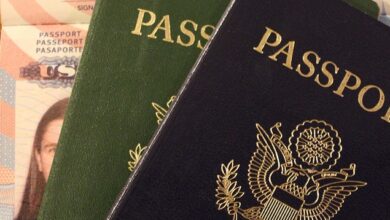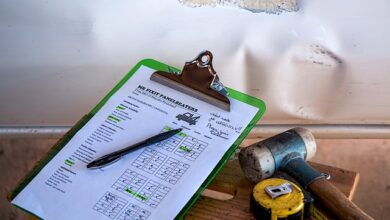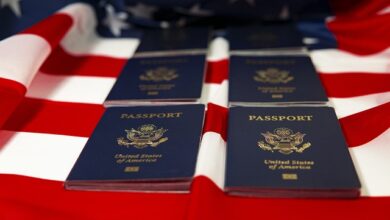How to Retire in the Netherlands as a Foreigner

Retiring abroad can be an exciting and rewarding experience, offering new opportunities for personal growth, cultural immersion, and adventure. The Netherlands, with its high standard of living, excellent healthcare system, and picturesque landscapes, is an attractive destination for retirees from around the world. However, retiring in the Netherlands as a foreigner requires careful planning and understanding of local regulations, financial considerations, and lifestyle adjustments. Below is a comprehensive guide to help you navigate this process.
1. Eligibility Requirements for Retirement in the Netherlands
Before moving to the Netherlands for retirement, it’s important to determine whether you meet the necessary requirements:
Visa and Residency Options
- EU/EEA Citizens: If you’re a citizen of an EU or EEA country, you have the right to live and work in the Netherlands without needing a visa. You simply need to register with the local municipality (Gemeente) within five days of arrival.
- Non-EU/EEA Citizens: As a non-EU national, you will likely need to apply for a residence permit (verblijfsvergunning). For retirees, the most relevant option is the “MVV Visa” (temporary residence permit), which allows you to stay in the Netherlands for up to five years. Afterward, you may qualify for permanent residency if you meet certain conditions.To qualify for the MVV Visa:
- Prove that you have sufficient funds to support yourself without relying on Dutch social benefits.
- Demonstrate health insurance coverage valid in the Netherlands.
- Pass a criminal background check and declare that you do not pose a threat to public order.
Health Insurance
Regardless of your nationality, having adequate health insurance is mandatory in the Netherlands. Non-EU citizens must ensure their insurance covers medical expenses both during the application process and after relocation.
2. Financial Considerations
Living comfortably in retirement depends on your income sources and budgeting strategies. Here are key financial aspects to consider:
Sources of Income
- Pensions: If you receive a pension from your home country, it can typically be transferred to a Dutch bank account. Some countries have tax treaties with the Netherlands, ensuring double taxation does not occur. Check with your government or financial advisor regarding any specific agreements.
- Investments and Savings: Interest earned on savings accounts or investments in the Netherlands may be subject to Dutch taxes. Be aware of potential withholding taxes and consult a tax professional for advice tailored to your situation.
- Real Estate Rentals: If you own property elsewhere and plan to rent it out, remember that rental income might also be taxed by the Dutch authorities depending on your circumstances.
Cost of Living
The cost of living in the Netherlands varies significantly based on location:
- Cities like Amsterdam, Rotterdam, and The Hague tend to be more expensive due to higher housing costs and demand.
- Smaller towns and rural areas offer lower expenses while still providing access to essential services.
Key expenses include:
- Housing: Renting or buying a home can be costly, especially in urban centers.
- Healthcare: Basic healthcare services are covered by mandatory health insurance, but additional treatments may require private coverage.
- Groceries and Utilities: Prices are generally moderate compared to other Western European countries.
- Transportation: Public transport is efficient and affordable; owning a car comes with additional costs such as fuel, insurance, and parking fees.
Taxes
As a resident of the Netherlands, you’ll become liable for Dutch taxes, including income tax, wealth tax, and value-added tax (VAT). Work with a local accountant to understand how these taxes apply to your specific situation.
3. Health and Well-being
Access to quality healthcare is one of the main reasons people choose to retire in the Netherlands. Here’s what you need to know:
Healthcare System
The Dutch healthcare system ranks among the best globally, combining public and private elements. Everyone residing in the Netherlands must purchase basic health insurance through a private provider. This insurance covers hospital stays, doctor visits, medications, and emergency care.
Additional benefits, such as dental care or physiotherapy, can be purchased separately as supplementary insurance.
Long-term Care
For elderly individuals requiring long-term care, the Netherlands offers various facilities and programs. These include nursing homes, assisted living communities, and home-based care services. Costs vary depending on the level of care needed, but subsidies may be available under certain conditions.
4. Social Integration and Lifestyle
Adapting to life in the Netherlands involves embracing its unique culture, traditions, and way of life.
Language
While many Dutch people speak English fluently, learning basic Dutch phrases can enhance your integration into society. Consider taking language classes before or shortly after relocating.
Community Engagement
Join local clubs, volunteer organizations, or expat groups to meet new friends and build connections. Activities such as cycling, cooking classes, or cultural events provide excellent opportunities for socializing.
Cultural Norms
The Dutch are known for being direct, practical, and environmentally conscious. Understanding and respecting these traits will make your transition smoother.
5. Practical Steps for Moving to the Netherlands
Once you’ve decided to retire in the Netherlands, follow these steps to streamline the process:
Step 1: Research Locations
Identify regions or cities that align with your preferences in terms of climate, amenities, and community vibe. Popular destinations for retirees include Zeeland, Utrecht, and Drenthe.
Step 2: Secure Housing
Look for accommodation options well in advance. Renting or purchasing a property in the Netherlands requires navigating legal procedures, so seek guidance from real estate agents familiar with international buyers.
Step 3: Open a Bank Account
Establishing a Dutch bank account simplifies transactions related to bills, taxes, and pensions. Bring identification documents and proof of address when opening an account.
Step 4: Register with the Municipality
Upon arrival, register at your local municipality office to obtain a citizen service number (BSN), which is essential for accessing services like healthcare and employment.
Step 5: Arrange Legal Matters
Consult lawyers specializing in immigration, property, and tax law to address any legal issues associated with your move.



